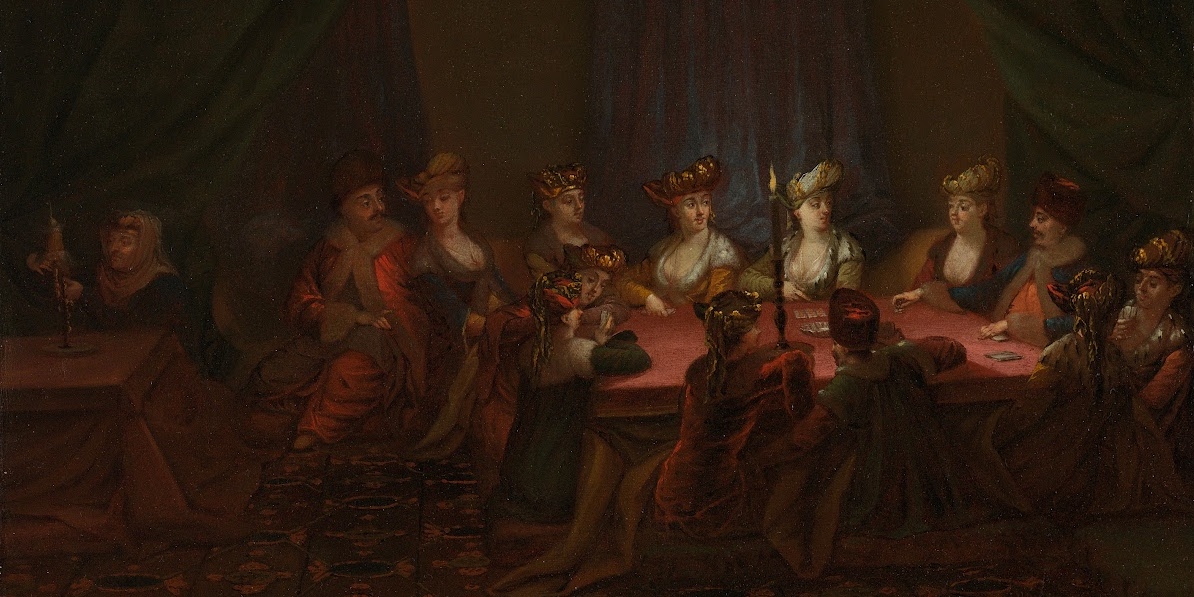Politics of the Family in the New Turkey
Episode 358
Feed | iTunes | GooglePlay | SoundCloud
Discourses surrounding the family and morality have played an important role in modern political debates. In this episode, we discuss the politics of family in Turkey and its relationship to both religion and government policy. Our guest Hikmet Kocamaner discusses how the Turkish Directorate of Religious Affairs--the Diyanet--oversees a range of activities concerning the family as part of the project of a "New Turkey" championed by the ruling Justice and Development Party (AKP). In particular, we discuss family-oriented television programming related to Diyanet. While distinctively Islamic in their rhetoric, these programs in fact serve as a fascinating meeting point for various expert approaches to social issues and the family, demonstrating the complex entanglement of Islamic and secular institutions in modern Turkey.
Stream via SoundCloud
Contributor Bios
 |
Hikmet Kocamaner is an Assistant Professor of Cultural Anthropology at the University of North Carolina at Wilmington, where he teaches anthropology of gender, ethnographic writing, and religion and politics. His article on Islamic television and the politics of the family was published in Anthropological Quarterly. He is currently completing his book manuscript, provisionally entitled Governing the Family through Religion in a Secular State: Islam, Expertise, and the Politics of the Family in the New Turkey. |
 |
Chris Gratien is Assistant Professor of History at University of Virginia, where he teaches classes on global environmental history and the Middle East. He is currently preparing a monograph about the environmental history of the Cilicia region of the former Ottoman Empire from the 1850s until the 1950s. |
Credits
Episode No. 358
Release Date: 17 April 2018
Recording Location: Harvard University
Audio editing by Chris Gratien and Hikmet Kocamaner
Special thanks to Muhtelif for "Samsa" and Kara Günes for "Istanbul"
Images and bibliography courtesy of Hikmet Kocamaner
Release Date: 17 April 2018
Recording Location: Harvard University
Audio editing by Chris Gratien and Hikmet Kocamaner
Special thanks to Muhtelif for "Samsa" and Kara Günes for "Istanbul"
Images and bibliography courtesy of Hikmet Kocamaner
Select Bibliography
Şimdi Ne Yapmalı? / What To Do Now? on TRT Diyanet. https://www.diyanet.tv/en/what-to-do-now
Agrama, Hussein Ali. 2010. “Secularism, Sovereignty, Indeterminacy: Is Egypt a Secular or a Religious State?” Comparative Studies in Society and History 52(3):495-523.
Kocamaner, Hikmet (2017). “Strengthening the Family through Television: Islamic Broadcasting, Secularism, and the Politics of Responsibility in Turkey,” Anthropological Quarterly, Vol. 90, No. 3, p. 675–714.
Kocamaner, Hikmet (2017). “Transformation of Islamic Television in Turkey from the Era of Secularist State Monopoly to Family-focused Programming under the Conservative- Muslim AKP Government” Islam in a Changing Middle East: New Islamic Media: POMEPS Studies Vol 3, February 10, 2017.
Kocamaner, Hikmet (2015). “How New is Erdogan’s New Turkey?” Middle East Brief 91(April):1-9.
Kocamaner, Hikmet (2014). The Politics of the Family: Religious Affairs, Civil Society, and Islamic Media in Turkey. PhD Dissertation. University of Arizona.
Kocamaner, Hikmet (2013). “Delinquent Kids, Revolutionary Mothers, Uncle Governor, and Erdogan the Patriarch: The Gezi Park Protests and Politics of the Family in Turkey” in Anthony Alessandrini eds. et al. Resistance Everywhere: The Gezi Protests and Dissident Visions of Turkey. Tadween Publishing.
Sirman, Nükhet. (2007). “Constituting the Modern Family as the Social in the Transition from Empire to Nation-state.” In Anna Frangoudaki and Çaglar Keyder, eds. Ways To Modernity In Greece And Turkey, 176-190. New York: Palgrave MacMillan Ltd.
Yazici, Berna. 2012. “The Return to the Family: Welfare, State, and Politics of the Family in Turkey.” Anthropological Quarterly 85(1):103-140.
 |
| Cover of Diyanet Magazine, October 2013 |











Comments
Post a Comment
Due to an overwhelming amount of spam, we no longer read comments submitted to the blog.